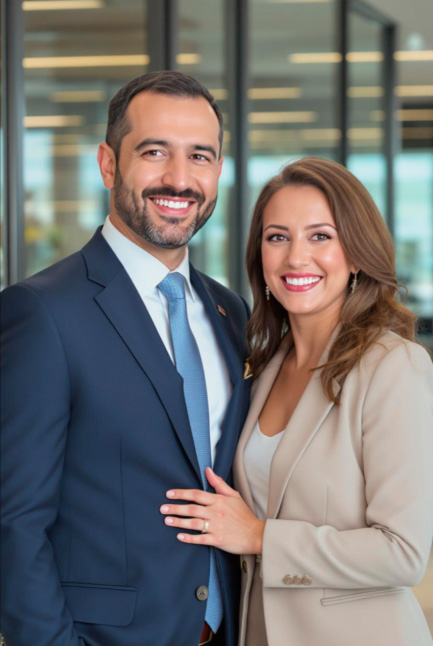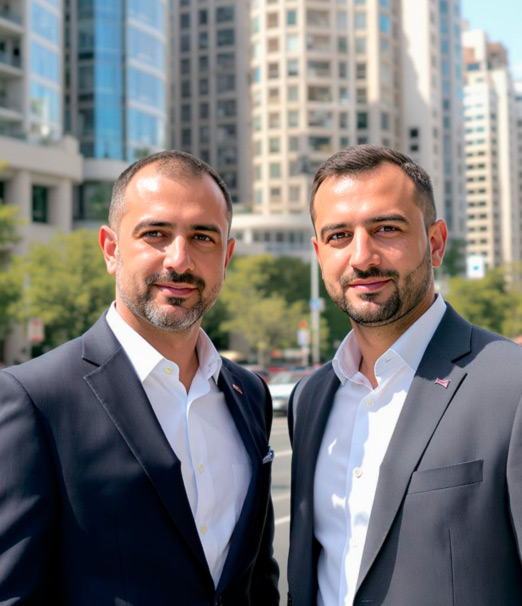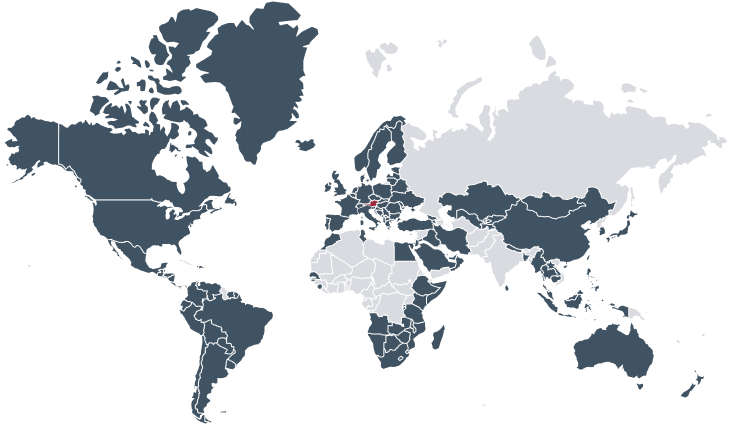
6 compelling reasons to apply for
an Austrian passport
-
Mobility within the EU
An Austrian passport opens the borders of 27 European Union countries, where you can freely live, work, and do business without visas or additional permits. You will gain access to a labor market of about 450 million people and a GDP of over 18 trillion euros.
-
Visa-free travel to 170+ countries worldwide
In the global passport strength ranking, the Austrian passport ranks 3rd — granting you free access to most countries, including developed jurisdictions such as the United Kingdom, the USA, Canada, Japan, Australia, and the Schengen Area countries. If you travel frequently, you could save up to 2,000 EUR annually on visa fees.
-
High-paying jobs in any EU country
Austrian citizens have the right to work in any EU country on equal terms with locals. For example, in Germany, your average monthly salary would be EUR 4,200, in France — EUR 3,200, in the Netherlands — EUR 3,800, and in Switzerland — EUR 6,500.
-
Prestigious European education
With an Austrian passport, you gain the right to attend top European universities for free or at a discounted rate, as well as eligibility for high scholarships and places in comfortable dormitories. You can study at prestigious universities in countries such as Germany, Italy, and France, saving up to EUR 20,000 on education.
-
World-class healthcare
With the European Health Insurance Card (EHIC), you will have access to healthcare services in all EU countries, including emergency care, planned treatments, and rehabilitation. Medical insurance in the EU costs an average of EUR 150–300 per year, covering up to EUR 100,000 in expenses.
-
Reliable banking system
As an Austrian citizen, you can benefit from the services of leading European banks — for example, you can apply for a consumer loan with an interest rate starting from 2.5% annually or a mortgage with rates starting at 1.8% annually. You will also have access to opening accounts in reliable Swiss banks.
Options for obtaining an Austrian passport
Naturalization
The standard process requires over 10 years of residence in Austria with a temporary (residence) permit (VNZ) and then permanent residency (PR). During this period, the candidate must demonstrate integration into Austrian society, proficiency in the German language, and financial stability. Spouses of Austrian citizens and refugees (in certain cases) can naturalize in 6 years.
Repatriation
The right to restore Austrian citizenship is granted to those who suffered persecution by the Nazi regime and their direct descendants, as long as they were not in Austria from January 30, 1933, to May 9, 1945.
For Exceptional Merits
Austrian citizenship may be granted in exceptional cases to individuals who have made an outstanding contribution to the development of science, economy, or sports. Foreigners who invest in Austria’s economy may also have the opportunity to obtain citizenship along with their family members.
Important Notes
- Austria does not grant citizenship in exchange for purchasing property.
- Austria does not recognize multiple citizenships but may allow a second passport in certain cases — usually for repatriates and those with exceptional merits toward the country.
The process of obtaining Austrian
passport

with an Austrian passport
 Leave a request and get a detailed consultation
Leave a request and get a detailed consultation
Do it yourself or with professional help
Applying without support:
- Lack of necessary knowledge in the field of migration law
- Critical errors when completing documents
- Inability to directly contact government agencies
- Difficulties caused by language barriers
- Unexpected expenses during the passport application process
- Risk of having to repeat the entire procedure
- Long wait for a decision from the migration authority
- High probability of being denied European citizenship
Applying with the support of Euvatandas:
- Full professional support
- Detailed consultations and answers to all questions
- Professional preparation of the required documents
- Working only with official programs
- Fixed cost of the services offered
- Legal support in government agencies
- Avoiding mistakes in the process of submitting documents
- Guarantee of a positive outcome of cooperation
Basic services and cost calculation
- Full legal support at every stage of the procedure, provided by a team of qualified lawyers in Istanbul and Ankara
- Collection, translation, legalization, and apostille certification of all necessary documents, including restoration of lost certificates and archival data
- Arranging priority appointments at the Austrian consulate and migration service
- Our licensed lawyer will be present when submitting documents and at all meetings with officials
- Assistance in obtaining an ID card, tax number, driver's license, and other Austrian citizenship documents
Cost:from EUR 19,000


Visa-free travel with
Austrian passport
on the path to EU citizenship
- Long-standing leadership in the migration services market
- A team of qualified lawyers and attorneys
- A personalized work plan for each client
- A high percentage of approved applications, confirmed by reviews
from satisfied clients
 Leave a request and get a detailed consultation
Leave a request and get a detailed consultation
 Leave a request and get a detailed consultation
Leave a request and get a detailed consultation

